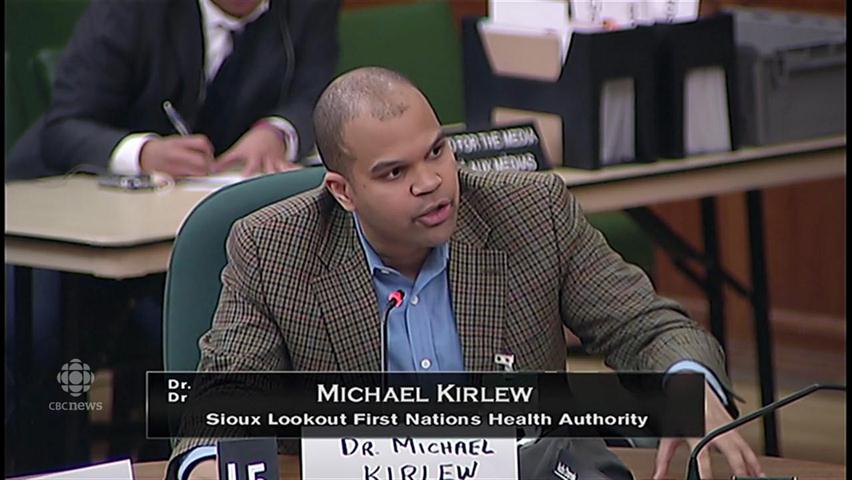Editors Note: Late Friday afternoon, Health Canada sent this response to the physicians letters.
Health Canada has received two letters from physicians working in the Sioux Lookout Region of Ontario and will be formally responding. Health Canada has been working throughout the summer in consultation with the Sioux Lookout Zone Physician’s Working Group to address the privacy issues related to requirements for medical transportation under the Non-Insured Health Benefits (NIHB) program. We will continue to consult the Sioux Lookout Zone Physician’s Working Group on doctor-patient issues moving forward.
Doctors providing medical services to First Nations patients in the Sioux Lookout region of Ontario are rebelling against Health Canada over requirements that force them to breach patient-doctor confidentiality.
Twenty-two doctors from the region signed a letter sent Sept. 30 to federal Health Minister Jane Philpott advising they would no longer be following the First Nation and Inuit Non-Insured Health Benefit (NIHB) program forms for patient travel support beginning Tuesday.
The doctors say the forms require doctors to provide confidential medical information that violates a patient’s privacy.
“On the current NIHB form, there is a field titled ‘reasons for appointment.’ It requires a physician to provide his or her medical diagnosis of the patient requiring funds for travel, either for their own or escort,” said the letter. “If such a diagnosis is not provided then the patient may be denied funds for travel for medically necessary treatment. This is a denial of access to medically necessary care. However, when a physician provides this diagnosis, we are potentially breaching patient-client confidentiality.”
The letter notes that a comparable program run by the Ontario Ministry of Health does not require that level of personal medical detail.
“The contrast between Health Canada’s required information and the (Ontario Ministry of Health), particularly that pertaining to travel escorts, is significant,” said the letter. “Medical necessity is a judgement made by a physician and their professional opinion should suffice as evidence of the need for both patient travel and the need for an escort.”
The First Nations and Inuit Health Branch is a program within Health Canada that is responsible for paying medical expenses for First Nation and Inuit people.
The program has come under severe criticism from physicians across the country for being too restrictive and bureaucratic. Medications are under the program are often denied in favour of less costly drugs, dental procedures are turned down and doctors complain that bureaucrats are making the final call on treatment when it should be the patient.
A separate letter sent to Philpott, also signed by same the doctors from Sioux Lookout region, which sits 400 kilometres northwest of Thunder Bay, outlines a number of additional concerns on privacy and the delays in getting First Nation and Inuit patients the care they need.

“The current process fetters access to medication as it is unduly lengthy and creates unnecessary delay in obtaining patient approval for medication,” said the letter, which was also sent Sept. 30. “The result is avoidable suffering for First Nations and Inuit people.”
The letter outlines the differences on how medications are dispensed at FNIB and the provinces including Ontario.
“The NIHB approval process for medications is significantly different from that of the Ontario Drug Benefit Program (ODBP). In order for a patient to get medication through the ODBP, only a three number code at the top of the prescription is required. This allows patients to receive their medication the same day. The current process through NIHB forms requires additional detailed patient information in order to approve exactly the same medication. Both the time for a physician to complete this extra paperwork and the time required to process the form is what creates a delay to receiving care.”
The physicians also call out the government for not doing enough to protect the privacy of First Nation and Inuit patients. While Ontario has the Personal Health Information Protection Act, there is no federal equivalent.
“The federal act does not specifically address health care and thus does not guarantee the same level of patient privacy protection as PHIPA or other similar provincial legislation,” said the letter. “It does not clearly protect the health or medical privacy of First Nations, Inuit and Métis clients and they suffer inferior protection of these privacy interests in comparison to the rest of the population.”
The letter ends with a warning to Philpott that the system must change.
“The current system provides care that is demonstrably inferior to that provided to non-Indigenous populations by the Ontario provincial health care system. Health Canada is obligated to support First Nations communities in receiving equitable health services and benefits and are responsive to their needs. The current method of drug approval needs to change immediately as it puts patient lives and health at risk.”
Dr. Michael Kirlew, one of the authors of the letters, went before the Commons Indigenous Affairs committee in April and delivered a passionate speech about the problems with the program including the lack of physician-patient confidentiality and delays in getting patients care.
Health Canada did not provide a comment when the story was posted.










When will the crap ever end?